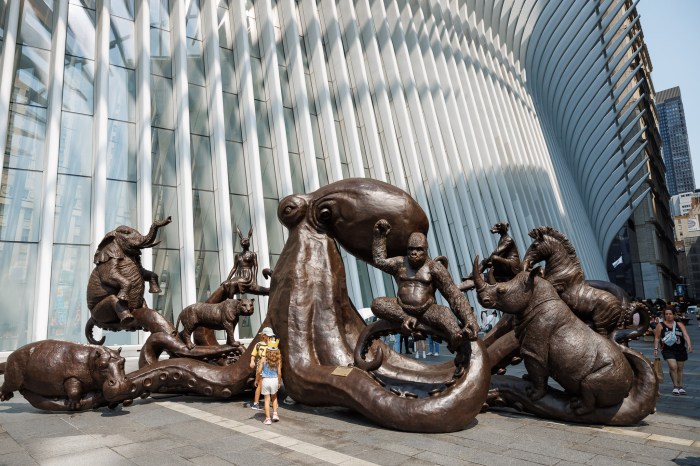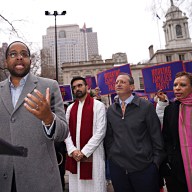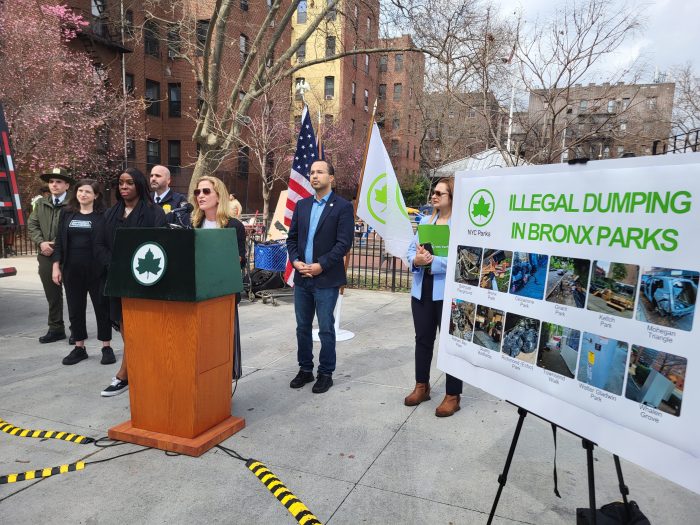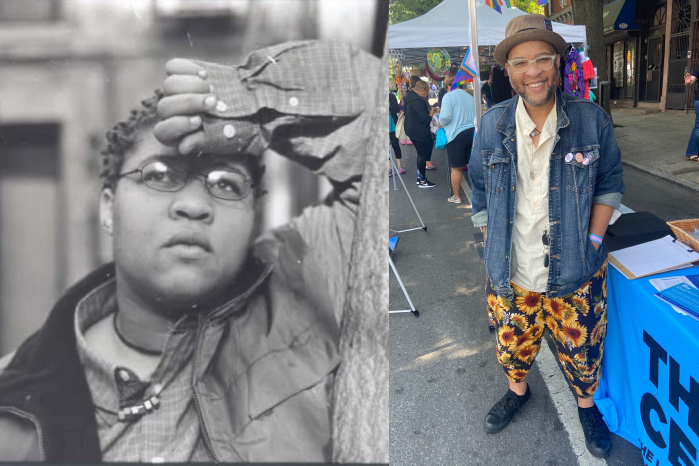Officials with Mayor Eric Adams administration on Thursday said a new 60-day limit on shelter stays for adult migrants is working as intended, with 65% of those in many emergency facilities handed notices about the policy indicating they will make a plan to leave the system.
The remarks came during a City Council hearing examining the relatively new policy, which Adams rolled out last month as a means of providing more shelter space to families with children as the city has become completely overwhelmed by asylum seeking migrants.
During the hearing, city Health + Hospitals Senior Vice President Dr. Ted Long said that of the migrants staying in facilities operated by the public hospital system who have been handed 60-day notices, 65% have said they want to make an “exit plan.”
“When we have our case managers having direct conversations with people we ask, ‘are you ready to make an exit plan?’ That will be something that will be executed within that 60-day period of time?” Long said. “So [that] number of people are telling our case managers, ‘Yes, I’m ready to make an exit plan. We’re going to write it out.’”
About 50 migrants, Long said, left the system within a day of having those conversations because the city was able to quickly provide what they asked for.
However, Long said, many others tell caseworkers that in order to vacate city shelters they need some support from the city. That support could be IDNYC cards — city-issued identification cards, English language lessons or help connecting with family, whether that be in the city or another municipality.
“Others, that constitute the rest of the 65%, need something that we haven’t been able to meet yet,” Long said. “Like IDNYC. Or like figuring out how a reconnection would work through the reticketing somewhere else in the country if they haven’t talked to family members in some time, things like that.”
When Adams announced the policy last month, he said the 60-day limit would be paired with intensified case management focused on finding migrants alternative housing before the end of the given timeframe. Those who don’t find another semi-permanent place to stay by the 60-day mark are required to leave their shelter bed and reapply for a placement at the Roosevelt Hotel, which is serving as the city’s asylum seeker welcome center.
Shortly after unveiling the policy, Adams said there is “no guarantee” of a new shelter placement for migrants displaced by the 60-day limit who reapply for a new bed.
So far, the city has handed out just over 1,400 60-day notices to migrants staying in emergency shelters operating by H+H, the Office of Emergency Management (OEM) and the Department of Housing Preservation and Development, OEM Commissioner Zach Iscol said during the hearing.
Iscol, when asked by Deputy Council Speaker Diana Ayala about how the 60-day limit was conceived, said the city came up with the shelter stay limit out of confidence many migrants want to leave shelter and are more than capable of doing so.
“We should not underestimate the abilities, the resourcefulness, the agency of the people in our care,” Iscol said. “And a lot of them, I think given 60 days, will find another place. They will be able to get out on their own feet. They just need that period of time to sort of get some sense of stability and figure out what that next step is going to be when they first arrive here.”
Ayala, who has experienced homelessness herself, expressed concern the policy would lead to newcomers sleeping on city streets and in public spaces.
“I worry that implementing the 60-day policy is going to leave folks out on the street with nowhere to go and no resources to provide for food or clothing,” she said.
Her comments follow what grew to nearly 200 single adult male asylum seekers languishing on the streets surrounding the Roosevelt Hotel for several days last week. Those migrants were all eventually relocated to city shelters by the end of the week.
Iscol assured council members that if the 60-day limit does indeed lead to far more new arrivals sleeping on the streets, the administration stands ready to adjust the policy.
“If we started to see a marked increase in people ending up in the streets because of the 60-day policy … we would adjust,” he said. “And I think we have remained flexible throughout and we will continue to remain flexible throughout.”
Read more: Manhattan Restaurant Vandalized with Hate Graffiti



































